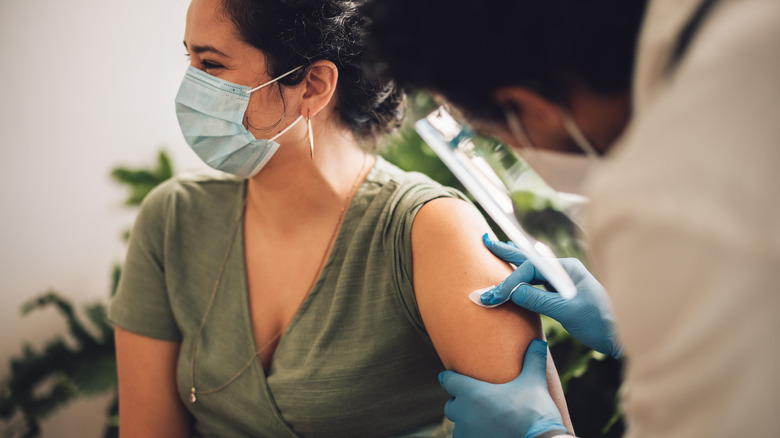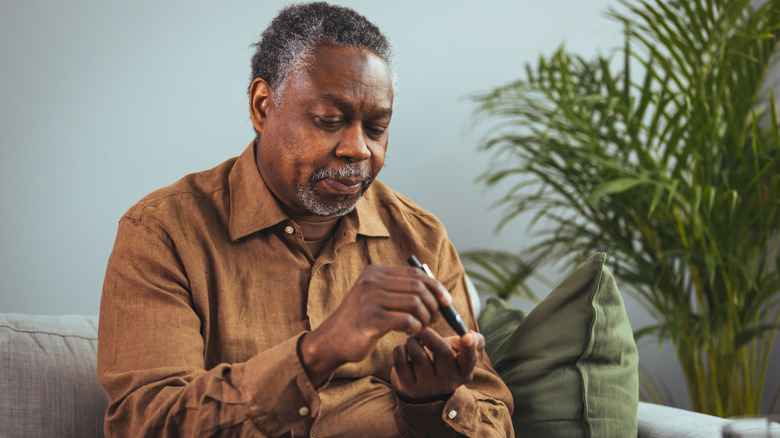Study Suggests Opting For The Vaccine Could Reduce Your Risk Of Post-COVID Diabetes
Throughout the pandemic, scientists have continued to study the risk of developing subsequent health conditions in individuals previously infected with COVID-19. Diabetes has been among these health conditions studied. For example, researchers from a 2022 study published in The Lancet found that the risk of diabetes was elevated amongst veterans diagnosed with COVID-19 for as long as a year following infection.
Now, a new study published in JAMA Network Open lends further evidence to these findings, while also factoring in vaccination status. Researchers gathered health data dated from March 2020 to June 2022 on more than 23,700 patients with one or more confirmed cases of COVID-19 who had been treated at Cedars-Sinai Health System in Los Angeles, California. The study team looked at prevalence rates of cardiometabolic disease in patients both prior to infection, as well as three months following infection. Such conditions monitored included new-onset diabetes, hypertension, and hyperlipidemia. Diabetes proved to be the disease with the highest risk of occurrence after infection, a trend that endured even in the midst of mutating variants.
Rates of diabetes were lower in vaccinated patients following COVID infection
Also factoring in patient vaccination status, the risk of developing diabetes in both vaccinated and unvaccinated patients stood at a combined 2.1%. 70% of these cases occurred post-infection versus prior to contracting the virus.
Between vaccinated and unvaccinated individuals, study findings showed that the risk for developing new-onset diabetes was 1.7% higher in unvaccinated patients, with nearly three-quarters of cases (74%) occurring following infection. In vaccinated individuals, 51% of diabetes cases developed post-infection.
As outlined in the research, the study team points to a possible link between vaccination and type 2 diabetes prevention following COVID infection. In a Cedars-Sinai press release, Dr. Alan Kwan, first author of the study and cardiovascular physician at the Smidt Heart Institute at Cedars-Sinai, stated, "Although further studies are needed to validate this hypothesis, we remain steadfast in our belief that COVID-19 vaccination remains an important tool in protecting against COVID-19 and the still-uncertain risks that people may experience during the post-infection period."


